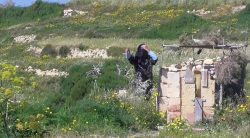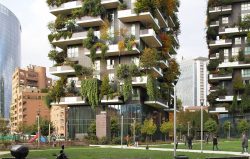It is so unfortunate that even in this election, the hunting and trapping issue has been put on the agenda when it doesn’t need to be! There are many environmental issues that need to be tackled in our islands and this is the time when our politicians are expected to tell us where they stand about them.
BirdLife Malta has prepared several suggestions for the political parties to include in their manifestos. Out of ten recommendations, only two are on hunting and trapping. Since this subject is already on the agenda, let me tackle these two first (one on wildlife crime enforcement and one on derogations).

Malta has been taken to the European Court of Justice regarding finch trapping (Photo by BirdLife Malta)
As a starter, hunting and trapping in Malta is fortunately also regulated by the EU Birds Directive. When Malta crosses the line, as it has done, the Commission intervenes and acts against Malta. In fact, there currently is a court case against Malta at the European Court of Justice regarding finch trapping. This is only one of a number of cases related to environmental issues over which the Maltese Government was taken to the European Court. So, what can local politicians do on the hunting and trapping issue without the Commission taking us to court?
There are some areas where the local government has some leverage. This is where the electoral promise by the Prime Minister to reduce the fines for those who break the law kicks in. This should be coupled with the fact that it is the government (one should say the police, but since this is Malta we will say the government) that controls the level of enforcement. So, by reducing the fines, and nullifying the enforcement, we have a hunting and trapping free for all. It is the physical presence of BirdLife Malta and other eNGOs that ensures there is a degree of enforcement.
So, considering all this, our electoral recommendation on wildlife crime has been to suggest the setting up of a dedicated and specifically trained Wildlife Crime Unit in the police force. We also suggest that all environmental and wildlife legislation should fall under the competence of one authority, the Environment and Resources Authority (ERA), which was specifically set up for such a reason. Birds are the only wild animals that do not fall under the remit of ERA but under the Wild Birds Regulation Unit! We believe that WBRU should be part of ERA.
When it comes to derogations, like our politicians that state that they should remain consistent with what they said, so shall we! We believe that derogations for trapping and spring hunting should cease and that the Birds Directive is clear on this matter. Furthermore, political parties should declare in their electoral manifesto their intention to apply any form of derogation to EU legislation that can have an impact on wildlife and/or habitats. If we are all talking about transparency, well we believe that the electorate should know beforehand what derogations each party is going to apply if and when in government!
Enough said about hunting and trapping! With Malta ranking first in Europe in urbanisation, having 33% of built-up areas, we believe that we need to protect the remaining Outside Development Zones. BirdLife Malta has made a simple electoral recommendation on ODZ; the area of ODZ is to remain the same or increase. This means that from the start of the term till the end of it (however long it is), the area of land must remain the same or increase. If a development proposal is approved inside a designated ODZ area, then another equivalent or larger area currently not ODZ must be designated as such.

Green roofs help create an urban habitat for local flora and fauna with the aim of bringing nature back close to us (Photo from stefanoboeriarchitetti.net)
About land use, BirdLife Malta has made specific recommendations on the introduction of green roofs on the island. These will help create an urban habitat for local flora and fauna. The aim is to bring nature back close to us. To achieve this, we are suggesting three measures: (a) 20% of government roofs should be converted to green roofs, (b) an incentive should be given to businesses to convert their roofs to green roofs, and (c) there should be domestic incentives like other incentives introduced by the state, to support the introduction of green roofs especially in highly urbanised areas and the fortified cities.
Our proposal on education follows the same lines, where we suggest that all schools should have green spaces. The scope of this space should be to serve both as a clean lung for the school and children and also as a venue where our kids can learn academic subjects in a natural surrounding rather than a walled classroom. Research has shown that children engage more when they are in a natural setting. Thus BirdLife Malta recommends that all new schools being built by the Foundation for Tomorrow’s Schools (FTS) should be designed with this in mind and that a target of 50% of existing schools should have designed green spaces within the next five years.
Moving from urban habitats to natural ones. Given our size and level of urban development, we believe that Natura 2000 sites are very important conservation sites. In this respect, the management plans for all Natura 2000 sites should be implemented. Whilst with regards to the marine SPAs a conservation measures plan needs to be the next step. ERA being an authority should be the regulator, whilst the execution of these plans should be given to eNGOs as operators and guardians of these sites. We also recommend that as part of the management plan for Natura 2000 sites, the areas in and adjacent to Natura 2000 sites should be pesticide-free.
With regards to pesticides we take our recommendations a step further and suggest that Malta should become the first European organic country. With people rightly alarmed at the high levels of pesticides in Maltese produce, we believe that the Maltese Islands can turn this around and become totally organic, even using it in our tourism promotion. Needless to say, our agricultural industry would need to be properly assisted in this measure.
On pollution BirdLife Malta is raising awareness on the levels of pollution in the harbour area. The levels of pollution in the harbour area have not improved even with the closure of the infamous Marsa power station. This is because the cruise liners berthed inside the harbour have power stations on board that are heavily polluting the area. In view of this, the Maltese Government should lobby with the other EU Mediterranean countries to designate the Mediterranean as an Emission Control Area (ECA) for cruise liners, so that they use the same cleaner fuels that they use in the Baltic. Apart from our belief that cruise liners should be obliged to use cleaner fuel, another option would be to plug into the national grid when berthed.
We have also made a simple recommendation on waste. All waste should be separated! We suggest the introduction of compulsory separation of all waste at home. We have also highlighted the need to put the attention on plastics in the sea. Immediate action needs to be taken to stop plastic from ending up in the sea. We understand that this is not an easy task, but it requires us as an island nation to make sure that this problem starts being taken seriously.
Finally, our last recommendation is about NGOs on matters like VAT, as NGOs cannot claim VAT; and support funding for NGOs to apply for EU funds.
To date governments have always tried to fuel the economy to the detriment of the environment. Quality of life also relates to all the points we have raised. Unfortunately, the debate in this election has been taken over by other matters, yet we have the right to know what each party is committing to do for the environment before voting for any one of them. After all, for this to be truly the best time for our country we need to have a healthy environment.
By Darryl Grima, BirdLife Malta President.
An abridged version of this blog was originally published by the Times of Malta.

